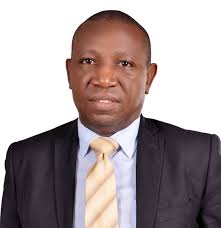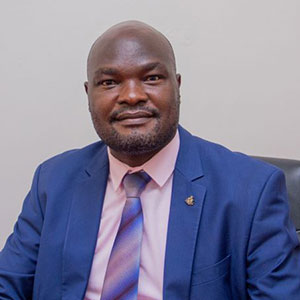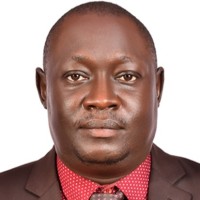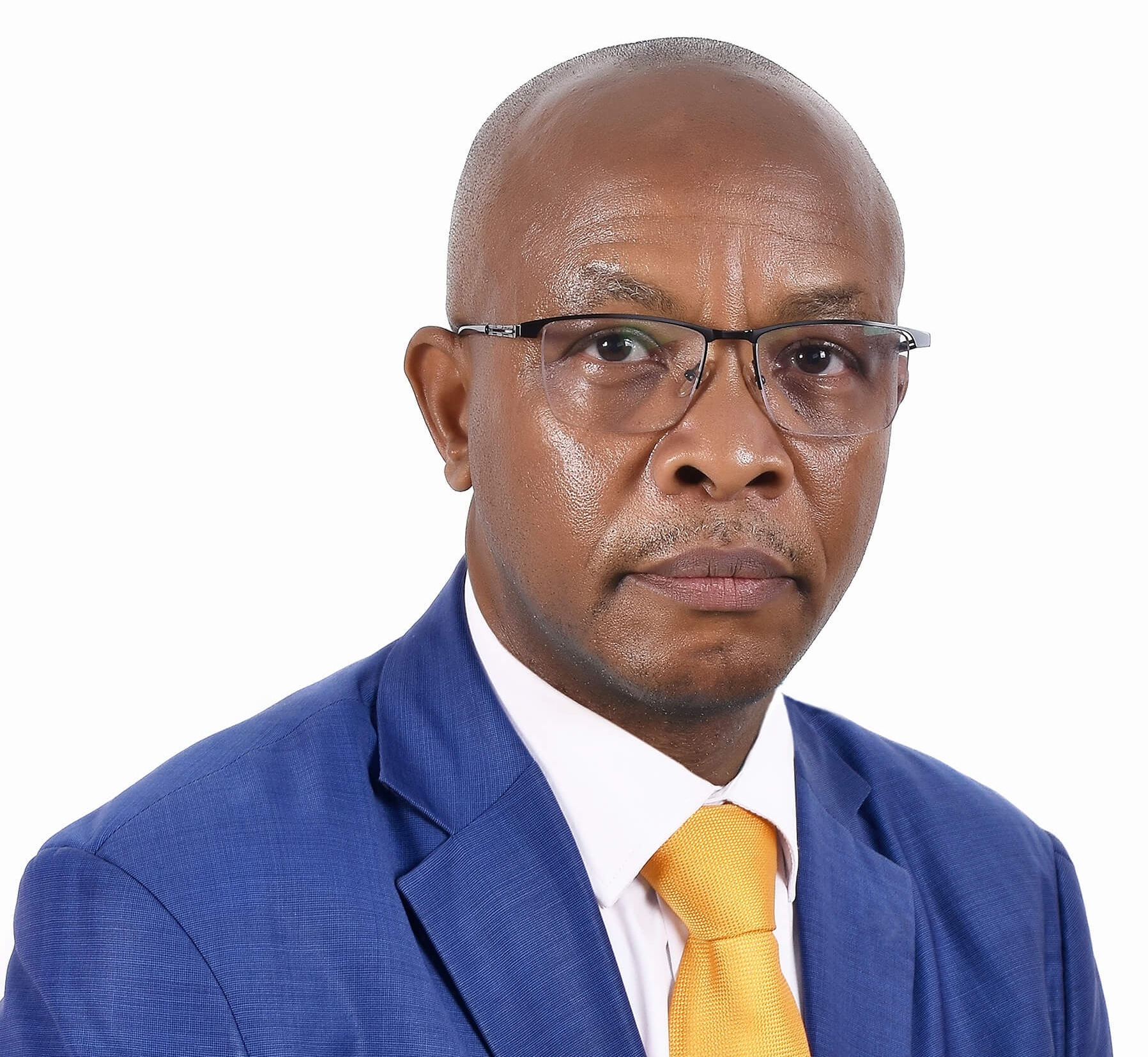Departments
The Ministry departments play a pivotal role in advancing national development goals by implementing ICT policies, programs, and initiatives designed to strengthen governance, infrastructure, and services across the country.
Each department within the Ministry is tasked with specialized responsibilities that align with the overarching national digital strategy. Whether it's managing ICT infrastructure, advancing electronic services, or ensuring efficient data networks, we are committed to delivering impactful solutions that contribute to Uganda's growth and development.

Nantongo Sophia
Under Secretary
Department of Finance & Administration
Objective
To provide administrative oversight in the Ministry for management of the operations of the ministry.
Structure and Staffing
The Department is headed by the Under Secretary in charge of Finance and Administration who is responsible for coordination, management and implementation of the ministry’s programs.
The department has 5 units which include;
- Human Resource Management (HRM) unit headed by the Assistant Commissioner
- Policy and Planning Unit headed by the Commissioner
- Accounts Unit headed by the Principal Accountant
- Procurement department headed by the Principal Procurement Officer
- Audit department headed by the senior Auditor
- Resource center and ICT unit
Activities
Activities of the department are derived from the following areas;
- Coordination and control of ministry expenditure
- Preparation of the ministry budget
- Management of Human Resources
- Development of Policy and Planning
- Management of Procurements
- Management of the Ministry’s assets
- Management of the ministry’s information Resources and ICT
- Management of records and archives

Moses Watasa
Commissioner, Communication & Information Dissemination
Department of Information & Communication
What the department does
To coordinate, promote and monitor the development of enabling environment and implementation of digital transformation and e-Services interventions.
Key Functions
Coordinating the Government of Uganda’s image/PR/brand management across MDAs and LGs.
Content development and management.
Formulate and implement laws, policies, and guidelines for regulating the media.
Coordinate the Government of Uganda’s Communication and Public Relations function. This involves disseminating information about GOU policies, laws, programs, and priorities in MDAs and LGs in line with NDP III and Vision 2040.
Provide media and publicity support for national and international events and commemorative days.
Sensitizing stakeholders about media and communication laws and policies.
Developing, implementing, and periodically reviewing the communication framework for the Government. This includes ensuring that communication plans for MDAs and LGs are properly aligned with the said communication framework.
Undertake capacity building for GOU communication actors at the center and in LGs.
To ensure a well-informed and mobilized society.
The Department has over time achieved key milestones like:
The department successfully organized the inaugural National ICT Job Fair 2022.
Implemented the Ask Your Government Facility (askyourgov.ug) Initiative in partnership with the Africa Freedom of Information Centre (AFIC) and Collaboration on International ICT Policy for East and Southern Africa (CIPESA)

Kambarage Kakonge
Commissioner, National Guidance
Department of National Guidance
Directorate Vision
A well-informed, peaceful, democratic and productive society working together to uphold national values and interests for sustainable national development
What the department does
National Guidance Department is essentially aimed at building consciousness in the citizens and community participation to avert the challenge of ideological disorientation which is the worst binding constraint to national development.
The department of National Guidance is tasked to do the following:
- To create awareness and understanding of the shared concept of National vision, National values, National Interest and National Common good as basic elements in shaping the behaviour and character of the ration.
- Providing the basic building blocks for identifying and defining Uganda’s common identity and aspiratons, which all Ugandans can believe in and consistently strive to achieve.
- Attempting to steer the country to development along a dear and guided ideological trajectory.
Some of our achievements
- Conducted Civic education awareness campaigns for elected and Appointed district leaders in promoting good Goverance in a mutiparty system in Koboko, Yumbe. Arua Cty, Mubende, Kesanda and Hoima districts for 400 participants.
- Benchmark study visit to Tanzania and Zanzibar on civic education practices which has made the department come up with a draft syllabus/curriculum for primary, secondary and university teachers.
- The department is in its final stages of completing the National Guidance Policy for presentation to Cabinet
- Launched the campaign dubbed “I am Ugandan” to embrace those ideals framed by our eminent citizens between 1991 and 1995 and placed as National Objectives and Directive Principles of State Policy in the Constitution of the Republic of Uganda.
- Conducted ideological consciousness sessions in 6 MEAs; Ministry of Energy, Ministry of Justice and Constitutional Affairs, Ministry of Foreign Altairs, Ministry of Gender Labour and Socal Development, Office of the Prime Minister (OPM) and Ministry of Public Service.
- Publicised goverment programmes (Education, OWE, POM, Production and works) on 4 radio stations – Peace of Africa FM 94.5, Voice of Life FM 100.9 Arua district, OP PM in Jinga and Kamuil and PointFM-106.1 n Mubende
- Operationalised the weekly National Guidance Moment program on UBC. TV/ every Thursday and identified good presenters

Agoi Goeffrey
Commissioner, ICT Infrastructure Development
Department of ICT Infrastructure Development
Overall function
To oversee and coordinate the planning and deployment of core ICT infrastructure in the country in collaboration with ICT infrastructure providers, regulators and related utility providers.
In Ugandan context, the scope of ICT infrastructure is defined to mean infrastructure used for telecommunications; data communication; radio communications; postal communications and broadcasting communications. For clarity and ease of administration, ICT infrastructure are categorized as either;
Tangible – fiber optic cables, satellites, masts/towers and related transmission facilities that provide intercity/region connectivity among others
Intangible – ICT infrastructure includes spectrum, numbering schemes
The long term goal of the department is to harmonize the planning, rollout, regulation and management of core ICT infrastructure in the country in collaboration with other sectors and utility providers.
The key specific functions are to:
Develop Policies, Laws, strategies, Guidelines and Standards on ICT infrastructure development
Coordinate the implementation of Laws, strategies, Guidelines and Standards on ICT infrastructure development.
Implement, monitor and evaluate Policies, Laws, Strategies and Guidelines on ICT infrastructure Development.
Develop and update an ICT infrastructure blueprint for Uganda and ensure compliance by all infrastructure developers and providers.
Develop and implement strategic projects aimed at developing ICT infrastructure efficiently and effectively.
Provide technical advice and support to Ministries, Departments, Agencies and Local Governments and other stakeholders related to ICT infrastructure development.
Monitor and evaluate performance of National Information Technology Authority- Uganda; Uganda Communications Commission; Uganda Telecom Limited; and Uganda Broadcasting Corporation on ICT infrastructure related matters.
Establish and implement innovative mechanisms for effective and efficient management of Radio Spectrum and Satellite orbital locations.
Provide technical support in formulation of practical engineering solutions for end to end management of waste arising from electronic products/ICT equipment and devices.
Provide leadership and coordinate national, regional and international ICT infrastructure development initiatives/programs/projects.

Kenneth Bagarukayo
Commissioner, Data Networks Engineering
Department of Data Networks
Our Journey
Prior to the restructuring of the Ministry of ICT & National Guidance in 2019, this department (Data Networks Engineering) was known as the department of Telecommunications and Posts under the directorate of Communications and Broadcasting Infrastructure.
After restructuring of the Ministry, the department emerged as the department of Data Networks Engineering under the Directorate of ICT Infrastructure to date.
Mandate
The department mandate is to address policy and strategic Data Networking issues in the sector. The overall function is to oversee and coordinate the deployment of Logical ICT infrastructure and resources in the country in collaboration with the Public and Private sectors.
Considering a technologically changing world, the department executes its functions dynamically in relation to the existing trends in data networking technology.
Develop Policies, Laws, strategies, Guidelines and Standards on Data Networks.
Implement, monitor and evaluate Policies, Laws, Strategies and Guidelines on Logical ICT infrastructure and its support systems.
Coordinate the implementation of Laws, strategies, Guidelines and Standards on Data Networks.
Provide technical advice and support to Ministries, Departments, Agencies (MDAs), Local Governments (LGs) and other stakeholders in the area of Data Networks.
Develop standards and guidelines for Internet Nodes, Hubs & Exchange Points countrywide and ensure compliance.
Develop and implement strategic projects aimed at using data networks for socio-economic transformation.
Develop standards and guidelines for development and rationalization of Data Centers including Cloud services in Government.
Monitor and evaluate performance of Uganda Post Ltd, NITA-U, UCC, UBC and UTL.
Coordinate and provide leadership in international and regional fora, meetings/initiatives/programs/projects regarding Data Networks.
Develop and adopt a National Postcode and Digital Addressing System for Uganda that is logical, unambiguous, reliable, expandable and updatable.
Develop strategies aimed at ensuring optimal use of Postal infrastructure and services
Some of our achievements
Developed the National Broadband Policy 2018 which provided ground for local listing of Telecom companies through the Telecom Licensing reforms. In early 2021, MTN publicly listed its shares.
Implemented the One Network Area (ONA) for Data and mobile financial services under the Northern Corridor Integration Project (NCIP).
Implemented the National Postcode and Addressing Geographic Information System (GIS) System Entebbe Pilot. Providing and capturing addresses for houses, roads and other existing infrastructure in Entebbe.

Patrick Mundua
Asst. Commissioner, Electronic Services
Department of Electronic Services
What the department does
To coordinate, promote and monitor the development of enabling environment and implementation of digital transformation and e-Services interventions.
Key Functions
Developing of Digital Services frameworks, policies, laws and regulations;
Promotion of E-services and emerging technologies across Government;
Supervision of the agencies, especially NITA-U;
Promoting interoperability and integration of systems;
Institutionalization of ICT functions in MDAs/LGs cadres;
Enhancement of cyber security, data governance and privacy;
Providing technical support and monitoring of eGovernment interventions in MDAs/LGs;
Reviewing, assessing and supporting the implementation of eGovernment systems and process re-engineering;
Promoting adoption of IT Enabled Services/Business Process Outsourcing (BPO) services;
Promoting local assembly of ICT devices and sustainable eWaste management; and
Developing critical mass of ICT professionals, digital skills and awareness for citizens in line with emerging trends
The Department coordinated the development of the following laws and regulations:
Data Protection and Privacy Act 2019;
National ICT Policy 2014
NITA-U (National Databank) Regulations 2019

Ambrose Ruyooka
Asst. Commissioner, Research and Development
Department of Research & Development
What the department does
The Research and Development department works closely with the E-Services department under the ICT Services directorate. The department is responsible for the following;
Provide ICT Capacity Building for cadres across MDAs in government
Provide support to Business Process Outsourcing/IT Enabled Services (BPO/ITES) centres across the country
Coordination implementation of the innovation fund under the National ICT Initiatives Support Programme (NIISP)
Liaise between the Ministry and regional ICT hubs & private hubs and the Uganda Institute of Information and Communication Technology
Support MDAs in as part of the the digital transformation agenda to automate services across all sectors in government
Development of internal modules, maintenance and operationalization of the Parish Development Management InformationSystem (PDMIS)
Supported the development and rollout of the Electronic Records and Document management Information System (EDRMS) across Government
Provided support for the development and deployment of the Electronic Government Procurement system (EGP) in all MDAs
Supported deployment of Government Assets Management Information System (GAMIS)